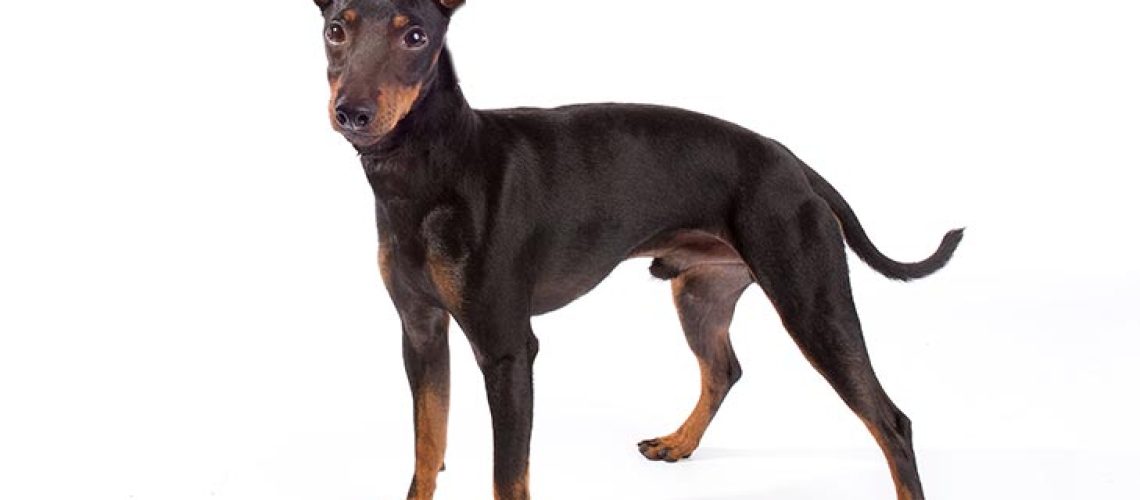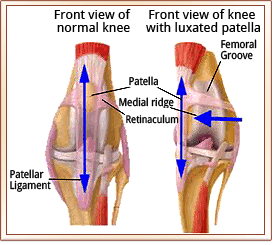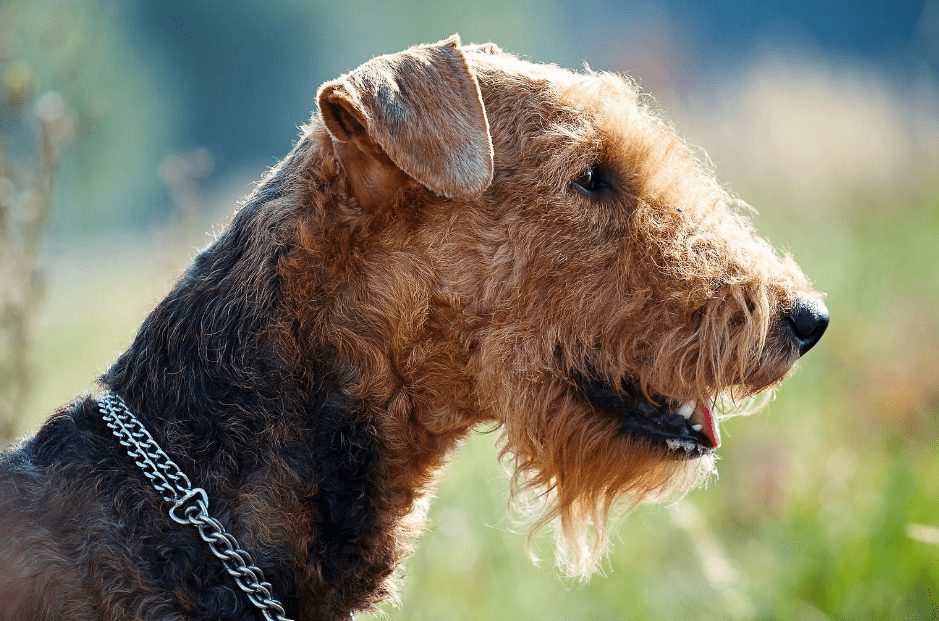Key Takeaways:
- Manchester Terriers are small, intelligent and energetic dogs that require regular exercise to prevent boredom and destructive behavior.
- They have a short, smooth coat that is easy to maintain with regular brushing and occasional bathing.
- Manchester Terriers are known for their loyalty and can be reserved with strangers, making early socialization important for proper development.
- Training should focus on positive reinforcement techniques as they respond well to praise and rewards.
- Regular veterinary check-ups and vaccinations are essential for maintaining the health of Manchester Terriers, who may be prone to certain genetic health conditions such as patellar luxation or progressive retinal atrophy.
Are you a dog lover? Do you enjoy learning about different dog breeds and their unique characteristics? If so, then you're in for a treat with our topic today – the Manchester Terrier! This captivating breed has a fascinating history and an array of qualities that make them truly special. By delving into the world of Manchester Terriers, not only will you gain insight into their distinctive traits and care needs, but you'll also discover the joys of owning one. Whether you're considering adding a new furry friend to your family or simply have a curiosity for all things canine, understanding the Manchester Terrier is essential. So, let's embark on this journey together as we explore the wonderful world of Manchester Terriers! Get ready to be amazed by these incredible dogs and uncover what makes them truly remarkable companions.
What is a Manchester Terrier and what makes it unique?
The Basics of Manchester Terriers
A Manchester Terrier is a small, sleek, and lively breed of dog that is known for its unique appearance and spirited personality. They have a short coat that comes in two varieties: the Toy Manchester Terrier, which weighs around 6-8 pounds, and the Standard Manchester Terrier, which weighs between 12-22 pounds. Both varieties have a distinct black and tan coloration with a sleek body and alert expression.
One of the most distinctive features of a Manchester Terrier is its ears. They have naturally erect ears that stand up straight, giving them an alert and attentive look. This feature sets them apart from other breeds and adds to their charm.
The Unique Personality Traits of Manchester Terriers
Manchester Terriers are known for their intelligence, energy, and independent nature. They are quick learners and enjoy being mentally stimulated through training or puzzle toys. Despite their small size, they have a lot of energy and love to play and explore.
Another unique aspect of the Manchester Terrier's personality is their strong prey drive. They were originally bred as ratting dogs, which means they have a natural instinct to chase small animals. This can make them prone to chasing squirrels or other small creatures when outside. It's important to keep them on a leash or in a securely fenced area to prevent them from running off after something interesting.
The history of Manchester Terriers: their origins and original purpose
The Origins of the Manchester Terrier
The Manchester Terrier has a long history that dates back to 19th-century England. They were originally bred for ratting purposes in the city of Manchester, hence their name. The breed was created by crossing the now-extinct Black and Tan Terrier with Whippets and Greyhounds, resulting in a small but agile dog with a strong prey drive.
Manchester Terriers were highly valued for their ratting skills, as they were used to control the rat population in factories and homes. Their sleek build and natural hunting instincts made them excellent at catching rats, which helped protect food supplies and prevent the spread of disease.
The Original Purpose of Manchester Terriers
Due to their ratting abilities, Manchester Terriers were popular among working-class individuals who needed an efficient and reliable way to control pests. They were also used for sport, participating in rat-killing contests where they would compete against each other to see who could catch the most rats in a given time.
Over time, as the need for ratting dogs decreased with improved sanitation practices, Manchester Terriers transitioned into companion animals. Today, they are loved for their intelligence, agility, and loyalty, making them wonderful family pets.
Important things to consider when taking care of a Manchester Terrier
Diet and Nutrition
Proper nutrition is essential for the overall health and well-being of a Manchester Terrier. As an owner, it is important to provide them with a balanced diet that meets their specific nutritional needs. High-quality dog food that contains real meat as the main ingredient is recommended. Avoid feeding them table scraps or human food, as it can lead to obesity and other health issues. It's also crucial to monitor their portion sizes and avoid overfeeding.
Training and Socialization
Manchester Terriers are intelligent dogs that require mental stimulation and consistent training. Early socialization is vital to ensure they grow up to be well-behaved and friendly towards people and other animals. Positive reinforcement techniques, such as rewards and praise, work best when training a Manchester Terrier. They respond well to structured training sessions that include obedience commands, leash walking, and basic manners.
Regular Veterinary Care
To keep your Manchester Terrier in good health, regular veterinary check-ups are necessary. Schedule annual vaccinations, flea and tick prevention treatments, dental cleanings, and routine blood tests as recommended by your veterinarian. Regular check-ups help detect any potential health issues early on, allowing for prompt treatment. Additionally, make sure your Manchester Terrier is up-to-date on heartworm prevention medication.
How much exercise does a Manchester Terrier need daily?
A Manchester Terrier has moderate exercise needs but still requires daily physical activity to stay healthy and happy.
Physical Exercise
Taking your Manchester Terrier for two 30-minute walks each day can help meet their exercise requirements. Engaging in activities like playing fetch or running in a securely fenced yard can also provide mental stimulation while burning off excess energy.
Mental Stimulation
In addition to physical exercise, mental stimulation is crucial for a Manchester Terrier. Puzzle toys, interactive games, and obedience training sessions can help keep their minds sharp and prevent boredom. Engaging in activities that challenge their problem-solving skills and provide opportunities for learning will contribute to their overall well-being.
Are Manchester Terriers good with kids and other pets?
Manchester Terriers can be great companions for families with children and other pets when properly socialized.
With Children
When raised with children from an early age, Manchester Terriers can form strong bonds and become excellent playmates. However, it's important to supervise interactions between young children and dogs to ensure both parties are safe. Teach children how to approach and handle the dog gently, respecting their boundaries.
With Other Pets
Manchester Terriers generally get along well with other pets if introduced properly. Early socialization is key to teaching them how to interact appropriately with other animals. Slowly introduce your Manchester Terrier to new pets in a controlled environment, allowing them time to adjust and establish positive relationships.
Common health issues in Manchester Terriers and how to prevent/manage them
While Manchester Terriers are generally healthy dogs, they may be prone to certain health issues.
Von Willebrand Disease (VWD)
VWD is a blood clotting disorder that affects some Manchester Terriers. Regular veterinary check-ups are important for early detection through blood tests. There is no cure for VWD, but managing the condition involves avoiding certain medications that can worsen bleeding tendencies.
Hypothyroidism
Hypothyroidism occurs when the thyroid gland doesn't produce enough hormones. Symptoms include weight gain, lethargy, hair loss, and skin problems. Regular thyroid function tests can help diagnose and manage this condition. Treatment involves lifelong hormone replacement therapy prescribed by a veterinarian.
Patellar Luxation
Patellar luxation is a condition where the kneecap dislocates from its normal position. It can cause lameness and discomfort. Regular exercise, maintaining a healthy weight, and avoiding excessive jumping or rough play can help prevent this condition. Surgical intervention may be necessary in severe cases.
Grooming tips for maintaining the coat of a Manchester Terrier
Manchester Terriers have a short, smooth coat that requires minimal grooming.
Brushing
Regular brushing with a soft-bristle brush will help remove loose hair and keep their coat looking shiny. Brushing also helps distribute natural oils, promoting healthy skin.
Bathing
Manchester Terriers only need bathing when they are visibly dirty or have an odor. Use a mild dog shampoo and rinse thoroughly to avoid skin irritation. Be sure to dry them completely after bathing to prevent chilling.
Nail Trimming
Trim your Manchester Terrier's nails regularly to prevent overgrowth and discomfort. Use dog nail clippers or seek professional help if you're unsure how to do it safely.
Ears and Teeth
Check their ears regularly for signs of infection or wax buildup. Clean them gently with a damp cloth as needed. Brush their teeth regularly using dog-friendly toothpaste and toothbrushes to maintain good oral hygiene.
Remember, regular grooming sessions provide an opportunity to bond with your Manchester Terrier while keeping them clean and healthy.
In conclusion, the Manchester Terrier is a small and energetic dog breed known for its sleek coat and playful nature. With proper care, exercise, and training, they can make great companions for families and individuals alike.
Is a Manchester Terrier a good family dog?
Manchester Terriers are good with kids. They are affectionate and aim to please, making them a great choice for a family pet if they have been properly introduced to children. They usually tolerate children's games and some Manchester Terriers may even allow children to dress them up.
Do Manchester Terriers like to cuddle?
Whether you're spending time at the dog park or relaxing on the sofa, a Manchester terrier will be content just to have your presence with them.
How do you take care of a Manchester Terrier?
This particular dog breed only needs to be bathed occasionally and may need a weekly wipe down with a damp towel or glove to maintain its clean and glossy short coat. Like all breeds, it is important to regularly trim their nails, clean their ears, and brush their teeth to ensure that the Manchester terrier looks and feels its best.
Can a Manchester Terrier be left alone?
Manchester Terriers are capable of being left alone for a few hours, as long as they are given sufficient exercise and attention before and after you leave and return.
What is a terrier best personality?
Terrier dogs are known for their confident and outgoing personalities, as they were originally bred to be strong and tenacious while hunting rats and badgers underground. They have a spirited nature due to the challenging nature of their original work.
What is the attitude of a Manchester Terrier?
The Manchester is highly intelligent and prefers to approach situations with thoughtful consideration. They enjoy making their owners happy and respond well to positive training methods that involve rewards. Harsh corrections should be avoided as they do not respond positively to them. It is important to keep training sessions enjoyable and full of enthusiastic praise for their successful efforts.
















